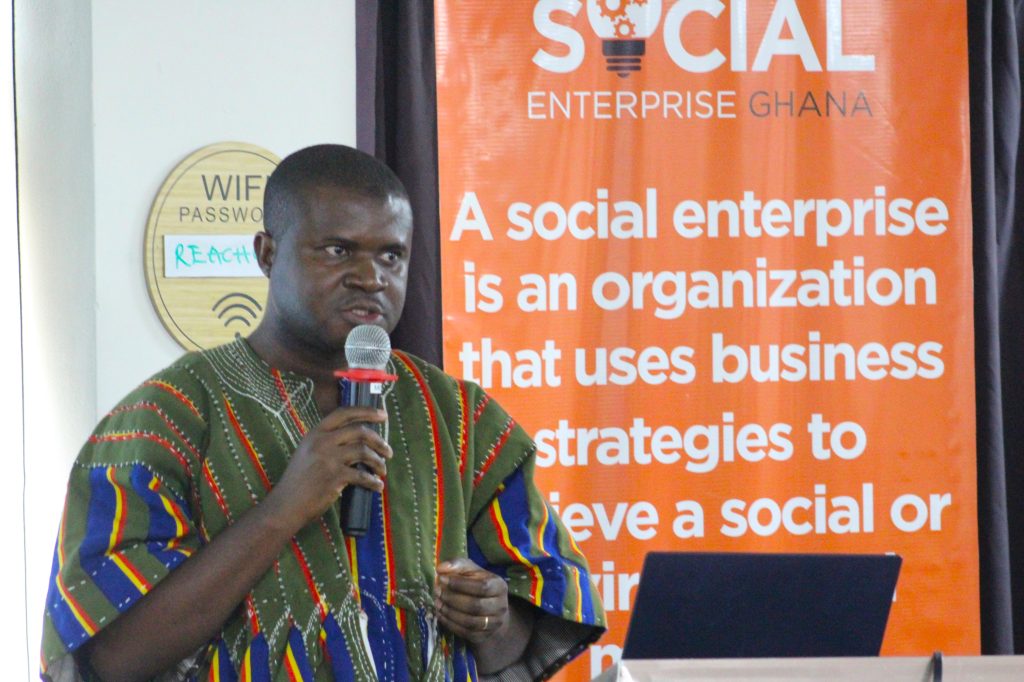By James Amoh Junior
Accra, Sept. 29, GNA – Stakeholders, including Civil Society Organisations, academia, policy makers and regulators, have underscored the importance of social enterprise to national development and called for a policy to sanitise the ecosystem.
The development of the Ghana Social Enterprise Policy (GSEP) will be in fulfilment of the Government’s commitment to promote and grow social enterprises as a means of improving livelihoods particularly among the youth, women and persons living with disability.
The aim is for the target group to contribute significantly to the achievement of the Sustainable Development Goals (SDGs), a universal call to action to end poverty, protect the planet and ensure that all people enjoy peace and prosperity by 2030 while fostering economic growth, ensuring social inclusion and protecting the environment.
The policy, currently at the draft stage, is aligned with other development programmes and strategies that seek to develop a thriving private sector and robust Micro, Small and Medium Scale Enterprises (MSMEs).
It, therefore, focuses on supporting MSMEs that play an increasingly vital role in building more resilient communities within the social enterprise subsector of the economy.
At a day’s stakeholders’ workshop in Accra, the stakeholders said there was a need to identify existing policies and bottlenecks and use advocacy to ensure that social enterprise policies were changed or made better for young people to get employment.
Madam Anatu Ben-Lawal, Chief Executive Officer, Social Innovation Africa, said a policy for social enterprises was brilliant and that there was need for an implementation plan with the involvement of all stakeholders and key partners.
She said a social enterprise policy was long overdue and that as long as there was no such policy, it appeared that the sector had not been fully embraced as people who ventured into it were not guided.
“Government has to give it the right to enhance investor confidence. The Policy is so crucial and has to be passed. Ghana must spearhead it with the AFCFTA headquartered here, social enterprises must thrive in a global market,” Madam Ben-Lawal said in an interview later with the Ghana News Agency (GNA).
She said there was the need to use social enterprise to unlock the challenge of youth unemployment in Ghana through innovation and idealisation, emphasising that until that was done Ghana’s social economy would remain the same.

Madam Malgorzata (Margo) Pitura, Programme Officer, Macro-Economic and Trade Section of the European Union, said the EU prioritised private sector development particularly social enterprises and the growth of the private sector to propel development.
She said in addition to the programmes it had ongoing in private sector competitiveness, trade and export development; the EU was developing programmes tailored at social enterprises with three strategic areas; access to finance, support to the business ecosystem and the improvement and growth of enterprises that use greening and environmentally sustainable methods in their businesses.
The EU, Madam Pitura said, took particular interest in digitalisation as there was a shift from manual business function to a digitalised economy.
Dr Jamie Halstall and Dr Michael Snowden, both from the University of Huddersfield, who spoke virtually on providing a new direction in tackling youth employment in Ghana, said social enterprise was a driver in public policy circles and must be seen as a positive catalyst.
For Ibrahim-Tanko Amidu, Executive Director, STAR-Ghana Foundation, with a few years to meet the targets of the SDGs, there was the need to quicken up.
He said in the amidst of the economic crisis Ghana was confronted with, some models of economic development, including social enterprise would be advocated for.
Mr Edwin Zu-Cudjoe, Executive Director, Social Enterprise Ghana, called for a broad-based collaboration and advocacy to have social enterprise recognised in Ghana to propel development.

GNA